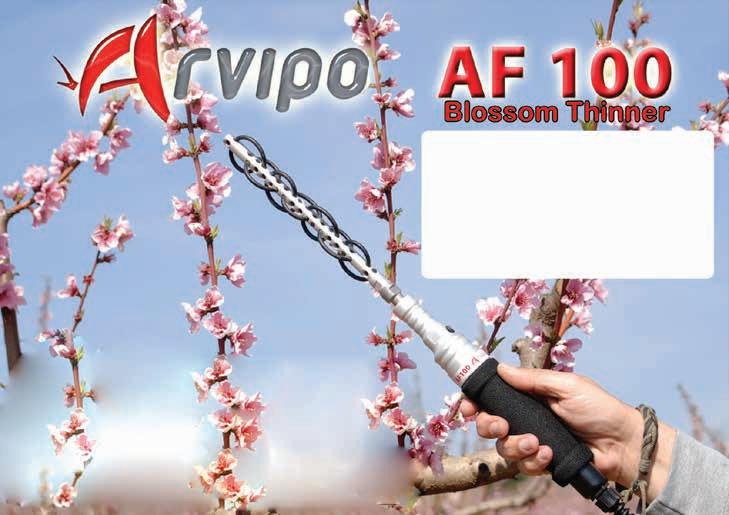YOUR INDUSTRY
Damage to leaves caused by the citrus flower moth
His most recent projects have included updating the citrus manual he helped to write in 2001.
management practices for the Australian citrus whitefly and lemon flower moth which needed updating.”
“I am still in the process of updating parts of that,” Keith says. “I have written the irrigation and frost protection chapters and am now engaged in writing pruning guidelines.
Another pest Keith hopes New Zealand growers never have to deal with is citrus greening Huanglongbing, also known as HLB.
Keith's ongoing input into the CNZ research programme is invaluable “When I came to New Zealand, not a lot of pruning was done and some of the trees were overcrowded. In 2003, I got an expert to come from Australia to hold pruning field days and now all growers see the need to prune, which gives better spray penetration for pest and disease control, improves air circulation, and brings light into the canopy for improved fruit size and quality.” Keith will later be working on a chapter on the physiological disorders of citrus, and another on planning and developing new orchards. From 2003 to 2005 Keith led a Sustainable Farming Fund project in cooperation with what was then HortResearch, to introduce integrated pest management to the industry and write a IPM manual for growers. “Together with Matt Carter, it was revised last year and now it is all online. A few things have changed since we first wrote it. Chemicals have changed and there are new pest 40
The ORCHARDIST : AUGUST 2021
“If it became established here it would decimate the industry,” says Keith. “It is in Florida, California and Texas and millions of dollars have been spent to try to control it. There is no way citrus growers here could do the same.” Since 2009 the United States Department of Agriculture has invested more than $400 million to address citrus greening which is also affecting citrus growers in Brazil, Central America and in Asia, where it originated. Citrus New Zealand is working closely with Biosecurity NZ and the Ministry for Primary Industries under a Government Industry Agreement (GIA) on guidelines to recognise the disease and its vector and implement control and containment measures should it arrive.
HLB is considered to be the most serious insect-vectored bacterial disease of citrus “I hope we can keep it out. HLB is considered to be the most serious insect-vectored bacterial disease of citrus. The big concern is if someone smuggles in infected plants as happened in Australia in 2019. The threat to





























